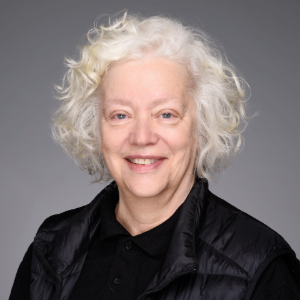Events
Jun 18, 2025
Seminar (2025-06-18)
School of Biomedical Sciences cordially invites you to join the following seminar:
Speaker: Professor Diana Boraschi, Distinguished Professor, Department of Pharmacology, Shenzhen University of Advanced Technology
Talk Title: Harnessing innate immune memory for enhancing vaccine efficacy. New molecular mechanisms controlling memory establishment and persistence
Date: 18 June 2025 (Wednesday)
Time: 2:00 pm – 3:00 pm
Venue: Seminar Room 1, G/F, Laboratory Block, 21 Sassoon Road
Host: Professor Jiandong Huang
Biography

Diana Boraschi is an immunologist with extensive experience in both academic and industrial research in Europe and USA. She is presently Distinguished Professor in Immunology in the Department of Pharmacology of the Shenzhen University of Advanced Technology, and Director of the Laboratory of Inflammation and Vaccines at the Shenzhen Institute of Advanced Technology of the Chinese Academy of Sciences (CAS) in Shenzhen, China. She is Emeritus Researcher at the National Research Council of Italy, member of the Accademia dei Fisiocritici, representative of Italy for Excellent Science in Horizon 2020 of the EU Commission, and evaluator/observer for many international funding agencies. She is author of over 230 peer-reviewed research articles in immunology (h-index 70, over 18000 citations), editor/author of 28 books, and inventor in eight patents. She is involved in higher education training and capacity building in Africa and Brazil, in the field of poverty-related infections. She has received an honorary PhD degree by the University of Salzburg (Austria) and is listed within the first 1% scientists worldwide since 2020. In 2022, she received the Chinese Government Friendship Award. Her scientific focus is on inflammation and innate immunity, and in the cross-talk between macrophages and infectious microorganisms.
Abstract
Vaccines against mucosal infections should induce immune protection without breaching the integrity of the mucosal barrier, posing problems in the selection of appropriate adjuvants. A meaningful way of targeting mucosal immunity without barrier breaching is to target macrophages, innate immune cells that scan the external environment and sense exogenous agents. We aim at exploiting the capacity of macrophages to “remember” previous challenges, i.e., to generate innate non-specific defensive memory, as non-disrupting adjuvant strategy for mucosal vaccines against enteric infections. Innate immune memory, generated by exposure to inflammatory events, allows innate cells to react in a more efficient way to the next challenges, and is mostly based on epigenetic changes. By using in vitro models of human primary cells (blood monocytes, mucosal-like monocyte-derived macrophages, mucosal and sub-mucosal mast cells) to assess the generation of innate immune memory to different types of agents, different memory responses could be observed, depending on the stimuli and cell types. In monocytes, memory generation seems to depend on chromatin/RNA modulation by G quadruplexes, which transiently form on nucleic acids around cations through Hoogsten hydrogen bonds and can interfere with various functions. Since the “immunobiography” of individual human beings is expected to shape their innate immune memory, an individual immune profiling would be required as the basis for a tailored adjuvanticity strategy.
All are welcome.

